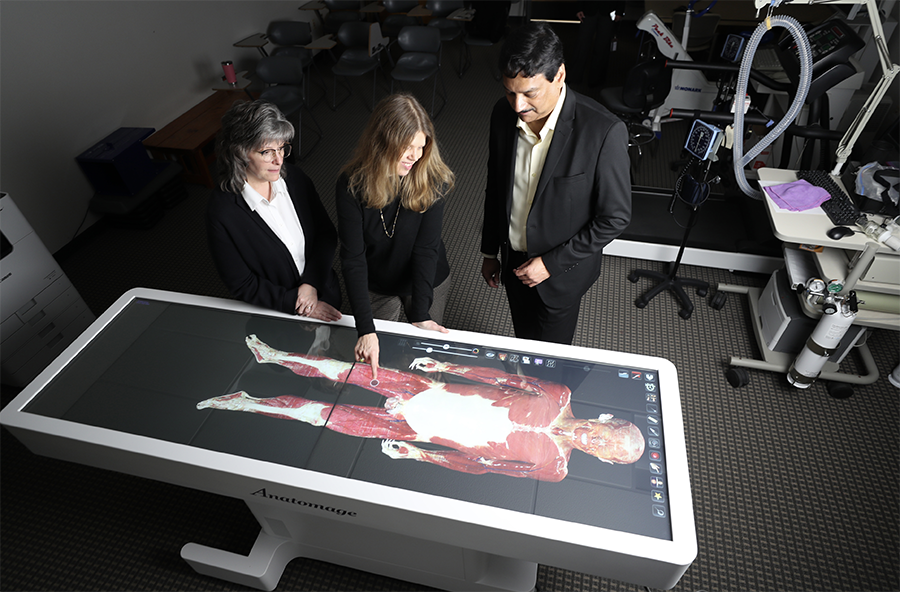
A national cadaver shortage has ushered in a new high-tech education and training pathway for students in Washtenaw Community College's Biology classes.
The college's new anatomage table is a 7-foot, touchscreen platform offering five digitized human cadavers and medical learning tools to enhance depth and breadth of the student learning experience.
The WCC Foundation provided a $125,000 grant to purchase the table, which offers access to digitized layers of skin, tissue, muscular, vascular, endocrine, organ and skeletal systems.
Faculty members have been training on the table and will soon introduce the new technology into class curriculum.
The college has maintained a cadaver lab for years through an agreement with the University of Michigan. The last remaining cadaver at WCC is set to be returned at the end of the current semester.
A shortage has made securing future cadavers a challenge for educational settings nationwide.
"This is the next best thing and will be a phenomenal resource for our students. It's a great opportunity for them to be really engaged," said WCC Dean of Mathematics, Science and Engineering Technology Tracy Schwab, Ph.D.
"Among the many advantages is everything is based on real humans — not artist's renderings — and because it is all digitized there is nothing you can accidentally delete or cut. If you make a wrong cut, you can go back," Dean added.
The touchscreens provide for a more immersive and interactive learning experience. It allows students to zoom in for closer looks and easily remove layers of cadaver to study a specific system. For example, fully tracing the body's blood flow from head to toe.
Tags: Anatomage Table, Biology, Technology, WCC Foundation
